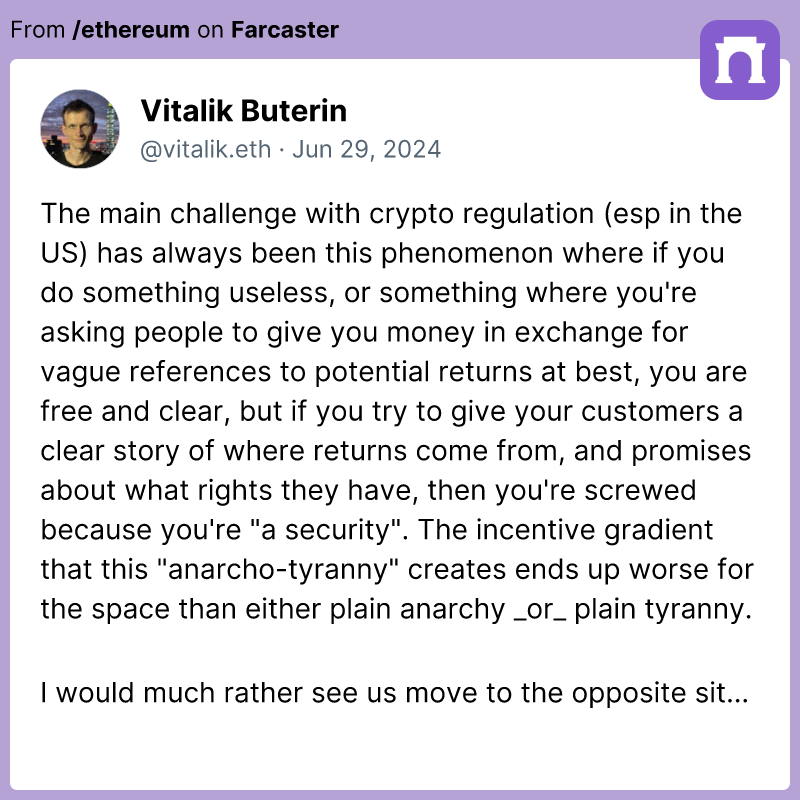Vitalik Buterin, the founder of Ethereum, made it to Farcaster to highlight an important issue in the crypto regulatory landscape, particularly in the United States. He pointed out that projects promising unclear returns often operate freely, while those with clear value propositions face strict regulation. This situation creates a counterproductive environment for the industry, according to Buterin.
Noting the problematic incentive gap created by this regulatory approach, he suggested that it is harmful to the crypto space as a whole. He believes that the current system, which can be described as "anarcho-tyranny," is worse than either complete regulatory anarchy or strict regulatory tyranny.
A key aspect of this perspective is the contrasting treatment of different cryptocurrencies. For example, meme coins like Dogecoin, which often lack a clear value proposition, seem to navigate the regulatory environment more easily. In contrast, more established projects like Ethereum, Cardano and XRP, which offer detailed plans and promises to their users, often face regulatory hurdles.

Good faith
Buterin argues for a change in regulatory practices. He suggests that issuing tokens without a clear long-term value proposition should be considered riskier. Conversely, projects that offer transparent value stories and adhere to best practices should be considered safer and face fewer regulatory challenges.
To achieve this shift, Ethereum founder calls for good faith engagement between regulators and the crypto industry. He believes that such collaboration is essential to creating a more balanced and productive regulatory framework.
This approach, according to Buterin, would encourage innovation while ensuring that investors are protected and well-informed about the projects they back.




 Dan Burgin
Dan Burgin Vladislav Sopov
Vladislav Sopov